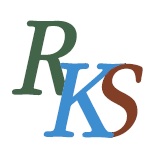The Present Conditions and Tasks in Constructing the Database of Korean Literary Materials Centering on the Korean Poetry Corpus
Abstract
The significance of the compiling project of the database of Korean literary materials lies in supplying well-organized research materials and theory and principle of scientific literary study for related researchers, in enhancing the research capabilities of Korean literature, and in developing the Korean language. First of all, I will generally introduce how the database of Korean literary materials has been compiled and how the related study has been carried out. And then I will introduce in detail the compiling process and the principle underlying the database of modern Korean poetry, the project of modern poetry corpus that I am trying to construct, and also show the present contents of compilation and a plan for their future use. The database on modern poetry is as follows and only a part of it is served on the Internet: 1) The modern poetry corpus (10,300 poems) containing text information of modern poetry together with the metadata; 2) the dictionary of usage of modern poetic diction (610,000 items) showing the usage and information of the sources of modern poetic diction; 3) the explanatory dictionary of modern poetic diction (44,000 items) containing the whole word list of the dictionary of usage and explanations on important words; 4) the whole list of modern poetry anthologies (2,430 books) published in 1908-1970; 5) and the index of articles on modern poetry (17,500 articles) contained in the collections of poems published in 1923-1950. I hope that scientific study on modern poetry based on such a database will flourish. At present, the quantitative way of study on modern poetry is being made on a basic level, and one of the ultimate purposes will be to find the stylistic fingerprint of each individual poet. This database will be supplied to related researchers on condition that joint research be carried out.
- keywords
- Korean Poetry Corpus, statistic research, humanities computing, corpus linguistics
참고문헌
Bae Hee-suk, (1999) Munhakjakpumui yangjeok bunseokgwa computer ui hwalyong,
A Quantitative Analysis of Literary Works and Use of Computer,
A Collection of Research,
(1999) Materials in an Academic Meeting, Autumn ,
Butler, (1985) Statistics in Linguistics, Basil Blackwell
Principle of the Indexing Literary Materials,
Constructing the Database on Modern Poetry,
Journal of Language and Literature of Korea Vol,
Academy of Korean Studies,
(2000) Hyeondaesiui gyeryangjeok munche yeongu siron(A Tentative,
Study on Quantitative Literary Styles of Modern Poetry,
A Collection of Papers in Conference The Society of the,
(2001) Hanguk hyeondaesieo yongryedaesajeon (CD-ROM) (Grand ,
Dictionary of Usages of Korean Modern Poetic Diction,
(2002a) Eomunhak jeonjadoseogwan network guseong(The,
Construction of a Network of a Digital Library of Linguistics and Literature,
The Compilation of Research Materials of,
The National Institute for the Korean,
(2002b) Hyeondaemunhak yeonguui jeongbohwa - hyeondaesi yeongu,
Informatization of Research on Modern Literature - A Plan for Constructing a Digital Library for Studying Modern,
(2004) Hanguk hyeondaesi database ui guseonggwa geu hwalyong,
The Construction and Plan of the Database of Korean Modern,
The Journal of the Korean Language and,
Poetic Diction and Usages of Kim So-wol,
Poetic Diction of Songgang-- A Study on the,
Concordance of Usage of Poetry Processed by Computer,
An Effective Plan for Computer Processing of Old Hangeul,
and a Study on Developing a Database System for Old Sijo,
Kim Hi-chan, (2000) Hangugeo malmungchiui gyeryangjeok cheori jeolcha,
A Study on Quantitative Processing of the Corpus of the Korean,
Kim Jin-young, (2002) Pansori jaryoui database guchuk hyeonhwanggwa,
The Present Condition of Constructing the Database of,
Dictionary of Modern Literary Figures in Korea,
The Total List of Types of Writings in Korean Literature,
Seo Sang-kyu, (1999) Gugeo jeongbohak ipmun (An,
Introduction to a Study of Korean Language Information,
(1999) The Institute of Humanities Information, Seoul National Univ
100 Years of Korean Modern,
(1996) The Institute for Korean Culture:Jeonja sijip, Korea University
(2002) The National Institute for the Korean Language, Hyeondae gugeo sayong
Research on Frequency of Use of the Modern Korean,
The National Institute for the Korean Language,
Diction of Kim So-wol and Its Structure of Use,
- 다운로드 수
- 조회수
- 0KCI 피인용수
- 0WOS 피인용수


